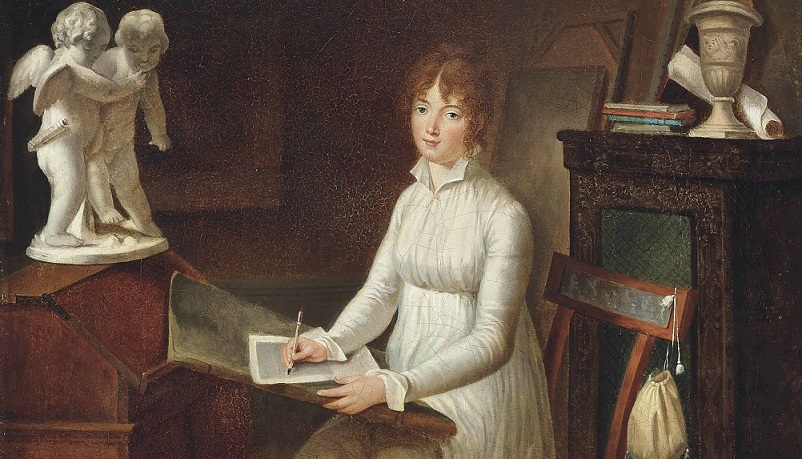Better Stock Than You
after Henry Lawson’s “Prouder Man Than You”
by Beverly Stock
Your tome of pride be shattered,
I’m from better Stock than you.
You don’t treat all as equals,
And I think your heart’s untrue.
Of course you think you’re “brilliant,”
All the writing that you do,
I’ll not play second fiddle:
I’m from better Stock than you.
You think only penning verse,
Lacks backbone and benefit?
And you’re so condescending
‘Cause I’m a published poet?
My verve springs from tradition,
While yours is trendy and new,
My rhymes soothe babes at bedtime,
I’m from better Stock than you.
When with your writing groupies,
As you pass me on the street,
And I am just too common
For your “scribing” friends to meet,
With your noses poised so high,
I’ll not come into your view,
Be blind to me forever,
I’m from better Stock than you.
While writers can be blameless,
If they keep their plot lines clean,
Seldom do they spare the means,
To keep their word count lean.
Don’t risk contamination,
Save face whatever you do.
Just keep walking with the “scribes”,
I’m from better Stock than you. .
It’s true, you have some groupies,
Cash for fiction by your side,
Poems are truly priceless,
Poet’s friendships transcend pride.
You don’t treat all as equals,
I still say your heart’s untrue,
Your tome of pride be shattered,
I’m from better Stock than you.
A Beautiful and Happy Girl
A combination of stanzas from the poems of 19th century American poets Whittier, Sherrick, and Wilcox, put together and adapted by Beverly Stock
With step as light as summer air,
Eyes glad with smiles, and brow of pearl,
Caressed by piles of careless curl,
In her abundant flowing hair;
Save thoughtful brow and gentle charms,
A seeming child in everything,
As Nature wears the smile of Spring,
Then sinks deep into Summer’s arms.
A winsome bride with woman’s grace
So fair and sweet, so coy, indeed,
A man to follow where she leads.
A graceful form and lovely face,
A heart, which, like a fine-toned lute,
With every breath of feeling woke.
From eye and lip in music spoke.
And, even when the tongue was mute.
A web of lace on jewel’ed hand,
A dream of love and wealth of gold–
The old new story once more told.
And life is blessed with wedding bands;
The years go on, and leave their trace,
Of graver care and deeper thought;
And she maintains a calm, cold face
Of womanhood, and inner grace.
This great lady well past her prime.
Behold how she sleeps in her chair,
Gray robed, and veiled; lace old and rare,
Her smiling eyes see vanished time.
Of splendid grace, and deep sublime,
She sits quietly unaware,
That peace has flown past encroaching care,
Her smiling eyes see vanished time.
©2020BeverlyStock
“Memories” (stanzas 1,2,4,6.), by John Greenleaf Whittier
“Two Pictures” (stanzas 3, 5), by Fannie Isabelle Sherrick
“England, Awake!” (stanza 7, 8), by Ella Wheeler Wilcox
Beverly Stock is a poet living in St. Louis, Missouri. Look for more of her work on her website: www.BeverlyStockPoetry.com















Beverly,
Ah, Whittier. A man whose self-conscious, unashamed, and unrestrained sentimentality captured the essential goodness of the mid-19th century American spirit and warmed the hearts of the common man more than any other American poet of his day. Now largely forgotten. A man who spoke truth and loveliness as simply and directly as Grandma Moses did in elevating toll painting to the level of primitive landscapes.
Sherrick and Wilcox? Two names I do not recognize. I will need to explore.
Many thanks for being creative in (re)introducing me to poets whose positive thoughts, along with your own, encourage and uplift me as I rise to a new day.
Or, as Whittier put it, “I’ll lift you and you lift me, and we’ll both ascend together.”
Thank you, James. I appreciate your kind words.
Beverly
Is there an actual poetic genre of combination, maybe quodlibet (a term used for similar doings in music; e.g., Goldberg Variations, no. 30)? Can anyone point to a collection of such?
In poetry the thing is called a “cento.” It’s a poetic composition made up of individual lines or passages from other poets. The practice goes as far back as Greek and Roman poetry.
Thank you, Mr. Salemi. I’ll see what I can find.